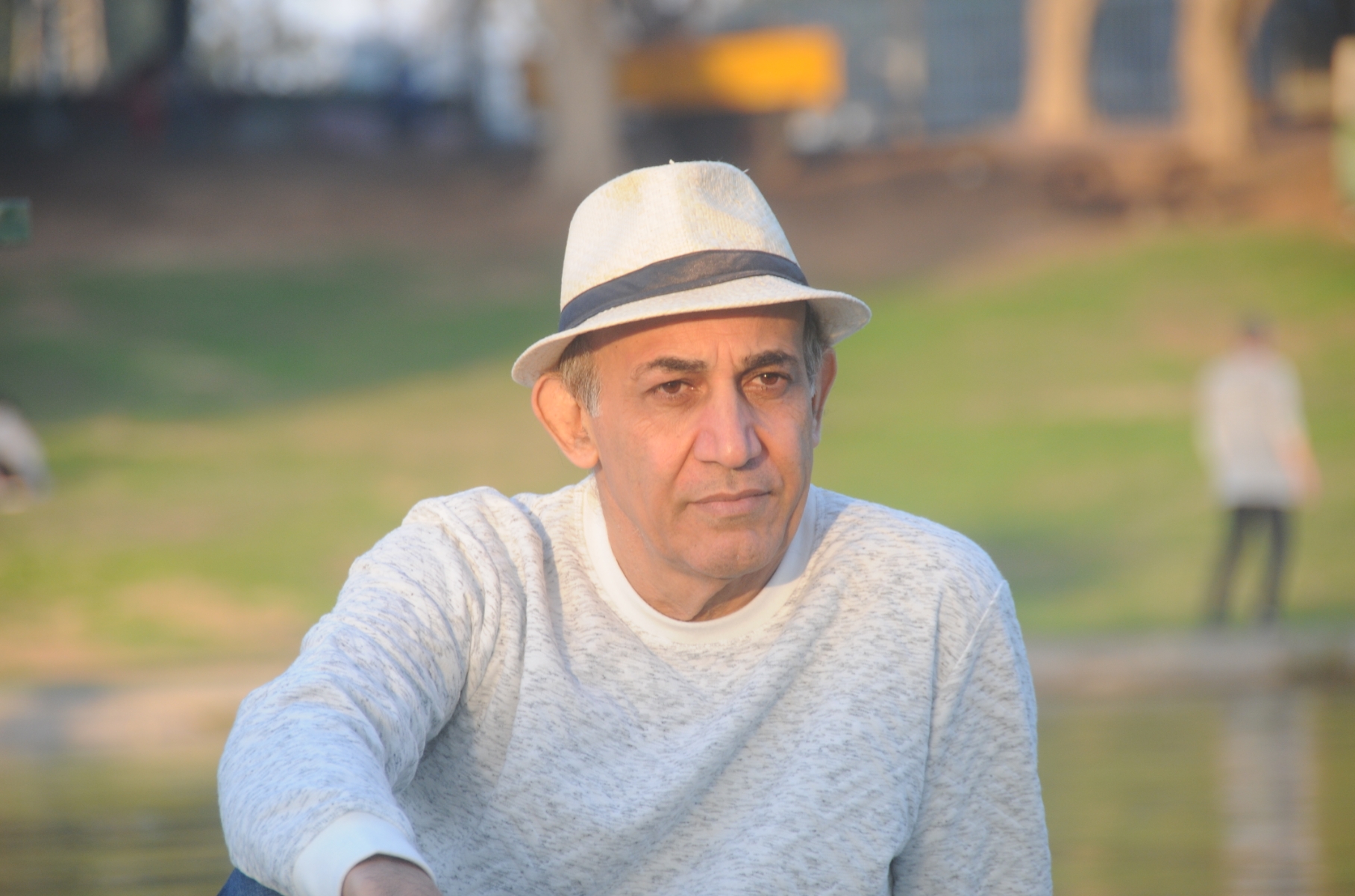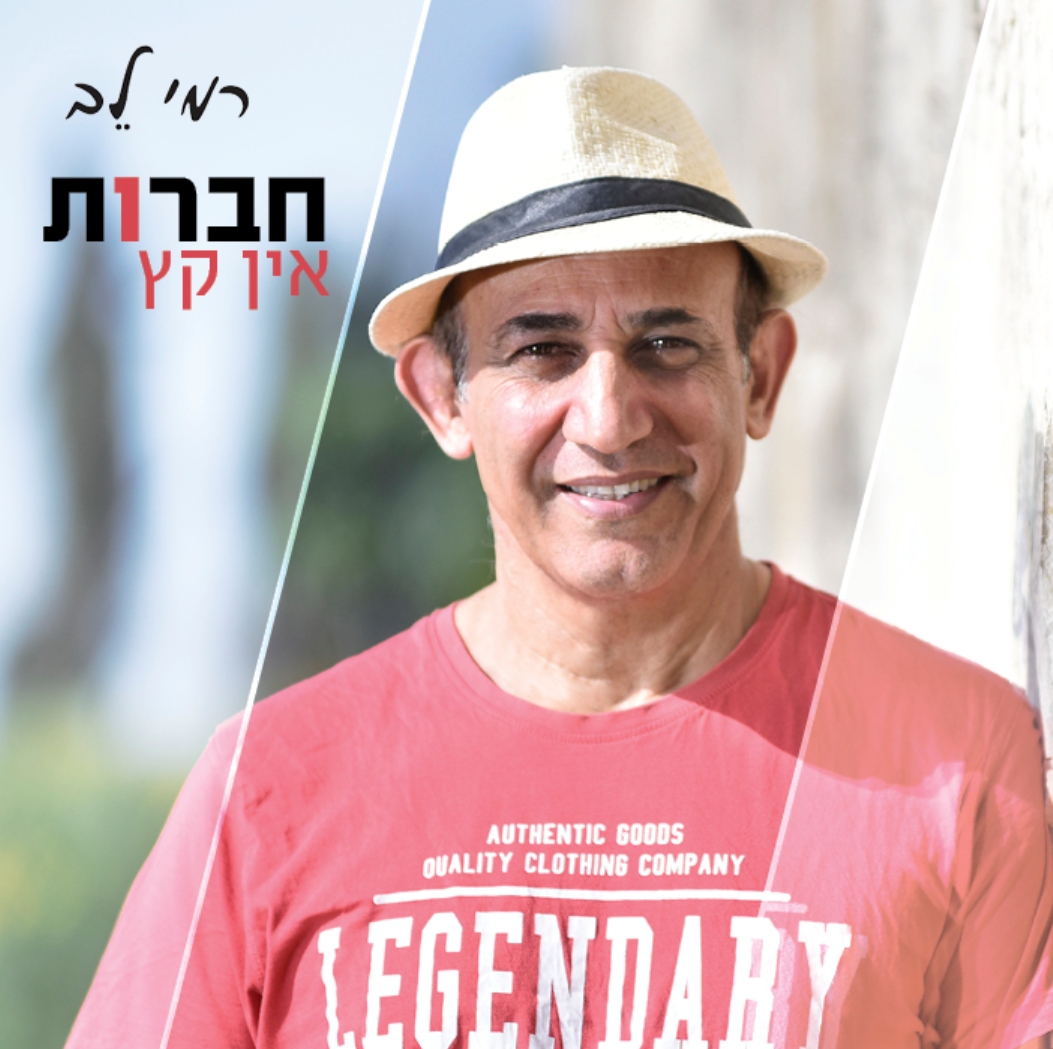Creator Rami Lev: "When My Mother Passed Away, I Wanted to Leave Everything and Just Mourn"
Nothing prepared creator Rami Lev for the fame he achieved through writing hundreds of songs, including many faith-strengthening ones. This is the story of the gifted child from a hard-pressed family in Nahariya who at age 16 was already writing and composing songs.
 Rami Lev (Photo: Yisrael Moshe)
Rami Lev (Photo: Yisrael Moshe)People who live the music industry know better than anyone what everyone understands with simple and straightforward sense: succeeding in writing a song that gets composed and published later is no easy feat. Few creators achieve such an accomplishment even after many years and considerable efforts.
Against this background, the productivity of creator Rami Lev is almost unimaginable. Lev - married and the father of three living in Kfar Saba, engaged in writing, composing, directing, and teaching theater - has about 400 songs to his name, which have been published and performed to date by many singers, including top artists in Israel. Lev, now in his fifties, attests that he still has strength and his hand is still stretched out. His current activities indeed confirm his words.
Naturally, such a vast store of songs brings amusing situations to its creator. "Listen, thank Hashem, it really is an incredible amount. I've written songs for Zohar Argov, Eyal Golan, Sarit Hadad, Dudu Aharon, Moshe Peretz, Omer Adam, Lior Narkis, Itzik Kalla, Yaniv Ben Mashiach, Chaim Israel, Yuval Taieb, Avishai Eshel, and many more.
"The funny thing is, sometimes I don't even recognize songs I wrote. This past Simchat Torah Eve, I participated in the second hakafot, and while dancing, I told myself: 'Wow, this song is familiar, but I don't know from where.' Only after a few seconds did I remember it was my song."
Moments of Prophecy
One might presume Lev's illustrious career began at a young age, and indeed this becomes clear at the start of our meeting in his home's garden. "I was born in Nahariya to a family that immigrated from Iraq. Some of my five siblings were born in Israel and others in Iraq. We were a hard-pressed family. I will never forget how hard I worked to buy my first guitar. My father was a merchant and my mother a homemaker. You could say we were a traditional family. We kept kosher, made Kiddush, and my mother instilled in us a very strong love for Judaism.
"These things stay with me to this day. I keep kosher, lay tefillin, go to synagogue on Friday night, celebrate the holidays, fast on Yom Kippur, and all. We built the sukkah right here, two meters from us.
"Beyond all the practical matters, faith in Hashem is always with me. When I get a call from a singer wanting a song, I don't forget to thank Hashem for taking care of my creativity and livelihood. In general, I always talk to Him. But I don’t boast about it or talk about it much. It feels very natural to me."
 (Photo: Yisrael Moshe)
(Photo: Yisrael Moshe)At what point did music enter your life?
"The seeds were sown during the hours my father listened to Arabic music. He had a phonograph he listened to every day between four and six. Dad would sit, with those worry beads rolling in his fingers, listening carefully. I remember not quite understanding why he listened to it, but it seeped into my veins. Maybe that's why throughout my life I've mostly written for singers from the Mediterranean genre. My brother balanced the style by listening to Western music of the '60s, allowing me to draw from both directions.
"When I listened to the songs they enjoyed, each within their style, I would close my eyes and imagine myself performing and creating. Later on, new songs started coming to me in dreams, and when I woke up, I didn't remember them and was really bummed about it.
"In high school," Lev continues, "I studied at the agricultural school in Nahalal. Two of my sisters also studied there. I was a gifted child, so they let me study for free. There I essentially began my artistic journey. I acted in plays, sang songs, and learned to play - by myself, by the way. I simply watched musicians and imitated them. During those years, I wrote and composed songs for various young singers, and through that, I met Asher Reuveni, who was already strong in the industry and was very excited about my texts and melodies.
"One of the songs I wrote was called 'Another Minute You're Gone.' I feel this song is like a prophecy, a real gift from Hashem. People often ask me how a 16-year-old boy writes something like that, and I say it’s only from Hashem.
"I sent the song to Asher and waited. A few days later, I was home, and my mom suddenly says to me: 'Asher Reuveni is on the phone.' Asher told me: 'Listen, both Zohar and Shimi (Tavori, editor's note) want the song. Who do you prefer to give it to?' I was very naive then and told him to simply give it to whoever loves the song more... Then, when the song came out, it was madness. The first time I discovered someone was listening to it was on a train. Two soldiers sat opposite me, listening to it on headphones.
"A few years later, while studying acting and working cleaning houses, one day I saw someone in a nearby house play the song and start crying. I was working before her and thought to myself: 'If only she knew that I wrote and composed the song.' It was a huge thrill for me. That's where I realized how deeply someone can connect to a song. And how I can affect the lives of people. My dreams simply came true before my eyes.
Where do you get your inspiration for all these creations?
"Of course, inspiration comes from various sources, but my mother, who passed away three years ago, was a very strong source of inspiration for my art. After she passed away, I didn’t want to do anything. I just continued to mourn. And here, in this place, I felt very strongly the faith in Hashem. Shortly after she passed away, I received the ACUM award for lyric writing, and I felt it was a heavenly sign telling me I needed to continue. By the way, *thank Hashem*, I received another ACUM award during her lifetime, for a song I wrote that was very successful.
"Thanks to these signs, I got back to writing. Because I felt that's what Hashem wanted from me. I returned to writing after I'd disconnected from everything and didn’t want to hear about writing anymore. I was deep in mourning. But faith in Hashem always pulled me up, even during very tough times. It encouraged me to continue writing and creating."
Even in the Hardest Moments
When exposed to some of Lev’s creations and the words he chooses to describe them, one can definitely feel his warm feelings towards Hashem and the Torah, and what he wishes to do to glorify their name in the world.
"When I wrote in the past for religious singers, and even when I write for them today, I really draw from my most basic roots. Home. Memories from my father’s house. Faith in Hashem. For example, one of the songs I wrote is called 'With Hashem's Help We Will Succeed.' It is very important to me to help people connect to Hashem through my songs.
"Beyond that, different people express their connection to Hashem differently. I have often expressed my faith in Hashem and my love for Hashem through songs. As I mentioned, I feel Hashem accompanies me even in the hardest moments.
 (Photo: Yogev Amrani)
(Photo: Yogev Amrani)"The truth is, in my new album, which is also my first, Hashem is completely present. Yaron Kotler, who was a very good friend of mine, passed away at a relatively young age, and this stirred in me a strong desire to make an album. And throughout, I prayed strongly to Hashem to succeed in what I am doing. In my prayers, I ask Hashem for many things, including creativity, and for things to be of benefit. And of course, I never forget to say thank you, and try to do as much good as possible in the world with my songs.
"Regarding the album, I can say all the songs that eventually made it into it are true stories from life. The songs actually describe an entire life's journey. For instance, we had a group of good friends who were into art and created something very familial together. One of the songs in the album, 'Joy,' tells about this essence. The title song of the album, and the album itself, are called 'Endless Friendship.' And not by chance."

